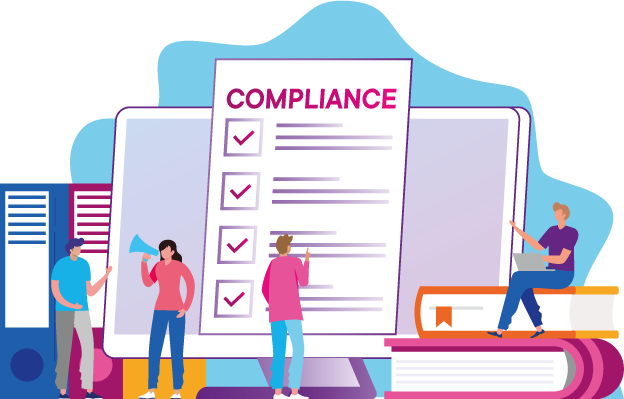Compliance checks affect every kind of business whether it is big or small so it is extremely important to be aware of what is required of you. Compliance checks refer to assessments made against a company’s finances to make sure that they pay the right taxes and also receive the correct tax allowances and reliefs. By carry out these checks businesses are less likely to engage in tax evasion and it ensures that the system is fair for both corporations and the general public. The world of compliance can be a complicated one and if you are not used to running your own business or completely new to it there are some checks to familiarise yourself with. HM Revenue and Customs can carry out checks that you are complying at any point so it is a good idea to be organised and aware of what is going on with your finances. Read on for more information of some of the lesser known compliance checks to be wary of.
Employee Rights
Often the word compliance brings to mind money and finance related matters but compliance also covers areas such as employee rights. You may not have been aware but employee rights and labour laws are in fact some of the most scrutinised areas when it comes to compliance checks. Using the services of a third party compliance specialist can be a good idea if you are unsure of what is required of you but here are some of the basics. Employees have the right to:
- The national minimum wage
- Paid holiday
- Payslips
- Protection against
- Sick pay and parental leave
These are the main rights of any employee and if you run a business you hopefully already stick to these. Work with your HR department or an external party to make sure you comply with the rights entitled to your staff as this will not only keep you on the right side of the law but also create a better environment for your workers. Remember that health and safety is also a heavily scrutinised area of compliance as every employee is entitled to a safe workplace and therefore there are many different checks you should carry out. Failing to comply with these standards could result in heavy legal fees, fines from the government and compensation to victims.
Corporate Governance
Complying with corporate governance rules is another area of compliance that businesses should watch out for. Corporate governance refers to the rules and regulations that your company has in place and goes by in order to best serve the interests of everyone. This includes employees, stakeholders, shareholders, customers and the wider community. A compliance audit will examine the decisions and policies you have in place from a financial standpoint and will make sure that you are fulfilling your responsibilities. Your overall corporate governance program should have accountability, fairness, responsibility and transparency at its core. A company’s board of directors have the main responsibility when it comes to corporate governance in terms of laying out the policies and strategy for the business. Again if your organisation fails to comply with good corporate governance in an audit you could be facing not only financial repercussions but also irreversible damage could be down to your public image and reputation.
Data Security
Lastly, data security is something often over looked when it comes to compliance checks. Over the past few years in particular ‘data protection’ has been a bit of a buzzword following the revelation that many people’s personal information has been leaked and distributed to third parties without their consent. Most of us will notice a marked change when it comes to say online shopping, we now have to accept or reject ‘cookies’ which store our information or we have to agree to a job database keeping our personal information for a certain period of time. Individual businesses have to be compliant to all data security requirements in order to pass compliance checks and these rules are becoming more and more strict so make sure to keep up to date with developments.
This is of course not an exhaustive list of compliance checks that could be carried out against your company but it is a good place to start. Compliance means more than just paying the correct taxes, it also means looking after your employees and complying with corporate governance. Failing to meet these compliance standards could result in sanctions and substantial fees so it is well worth informing yourself on the requirements and even considering taking on a compliance partner to ensure nothing is missed. Being compliant will not only keep you on the right side of the law but it will also help to keep your employees more satisfied and improve your company reputation with the public.

